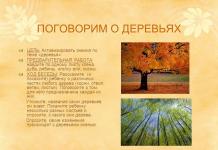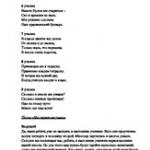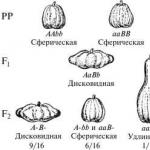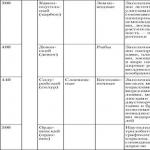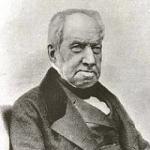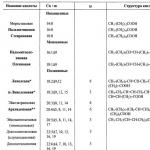On May 25–26, 2017 in St. Petersburg, at the Tauride Palace, the VIII Nevsky International Ecological Congress was held under the motto “Environmental education - a clean country”, dedicated to issues of environmentally responsible behavior, the development of a “green economy”, culture of production and consumption, healthy lifestyle .
The main goal of the VIII Nevsky International Environmental Congress is to develop a broad discussion, organize the exchange of information and experience on the formation of an environmental education system as a guarantee of environmental safety, preservation of public health, implementation of successful strategies and programs for improving the waste management system, and introduction of the best available technologies.
By decrees of the President of the Russian Federation, 2017 was declared in Russia as the Year of Ecology and the Year of Protected Natural Areas, therefore, much attention at the congress was paid to the issues of improving legislation in the field of development of the protected area system and maintaining biological diversity.
As part of the business part of the program, a plenary session and thematic round tables were held, at which the most pressing issues were discussed by the heads of legislative and executive government bodies, representatives of international organizations, business circles, educational and research institutions, the media, public associations of the participating states Commonwealth of Independent States and other countries.
Chairman of the Central Council of the Environmental Union, SPbRO Russian Ecological Academy, Professor Veronika Tarbaeva spoke at the section “Modern system of environmental education and awareness”. It showed the role and significance of the all-Russian environmental campaign “Water of Russia” in the formation of an environmental culture of the population and instilling a careful attitude towards water. V.M. Tarbaeva demonstrated, using examples of the implementation of environmental and educational projects within the framework of the Federal Target Program “Water of Russia,” how much attention S.E. Donskoy and D.M. Kirillov pay to the issues of education and informing the population in the field of use and protection of water bodies. She also praised the regions of the Russian Federation, which took the first ten places in the regional ranking, for their active participation in the Promotion.
Based on the results of the discussions, proposals were formed to improve legislation aimed at further developing environmental education, strengthening interregional and cross-border cooperation in the Commonwealth of Independent States, introducing environmentally oriented, resource-saving technologies, ensuring a healthy living environment and improving the quality of human life.
Representatives of the Presidium of the Russian Ecological Academy Veronika Tarbaeva and Olga Plyamina took part in the Action to restore lost trees in the Tauride Garden. The event was headed by Valentina Ivanovna Matvienko, Chairman of the Federation Council.

The fourth Nevsky International Ecological Congress will be held in St. Petersburg on May 16-17, 2011. It is held by the Interparliamentary Assembly of the CIS Member States together with the Federation Council of the Federal Assembly of the Russian Federation. The official partner of the congress is the United Nations Industrial Development Organization (UNIDO).
Round table “From MEGApolis to ECOpolis”
On May 16, 2011, within the framework of the IV Nevsky International Ecological Congress, a round table “From MEGApolis to ECOpolis” will be held (St. Petersburg, Parliamentary Center, Exhibition Hall, Shpalernaya St., 53).
Environmental threats have become one of the most serious problems of our time. This is especially acute in large cities around the world. Residents of large cities are increasingly thinking about “escape” to nature.
Is it possible that life in environmentally friendly conditions will not be associated with the loss of the achievements of civilization? Are there urban planning solutions that will not harm the environment?
We invite you to attend round table No. 8 (“From MEGApolis to ECOpolis”), where issues of development and practical application of the latest green construction technologies, innovative environmental projects and much more will be discussed.
Round table “Black List of the Red Book”
On May 17, 2011, within the framework of the IV Nevsky International Ecological Congress, a round table “The Black List of the Red Book and the conservation of rare species of animals” will be held (St. Petersburg, Tavrichesky Palace, Shpalernaya St., 47).
The earth is approaching an environmental catastrophe. Humanity's demands for natural resources have already exceeded by a third what our planet can provide. The “black list” of the Red Book increases every year.
What needs to be done to preserve the flora and fauna that nature has created over millions of years? Is it possible for a future in which unique species of animals and plants can safely coexist with civilization? Quite. But for this you need to make every effort now. Including in international legal regulation of environmental issues.
We invite you to visit round table No. 7 (“The Black List of the Red Book and the conservation of rare species of animals”), where the issues of protecting rare species of animals and human responsibility for nature and its conservation will be discussed.
The moderator of the round tables is a member of the Federation Council Committee of the Federal Assembly of the Russian Federation on Constitutional Legislation, Chairman of the IPA CIS Standing Commission on Culture of Information, Tourism and Sports Evgeniy Georgievich Tarlo.
The congress is also expected to consider current problems in the formation of innovative mechanisms for the development of the social and environmental sphere, including the innovative concept of UNIDO “Green Industry”.
Additional information about the congress can be obtained on the website of the CIS Interparliamentary Assembly www.iacis.ru and the website of the Nevsky International Environmental Congress www.ecocongress.info
22.05.2013
On May 22, the Tauride Palace hospitably accommodated the participants Nevsky International Ecological Congress. This is already the 6th event, which has been held in St. Petersburg annually since 2008.
2013 is the Year of the Environment, making this congress an extremely relevant event. It was attended by: City Governor Georgy Poltavchenko, Minister of Natural Resources and Environment Sergei Donskoy, Chairman of the Federation Council Valentina Matvienko, as well as UN representatives, politicians from other countries and everyone who is connected with ecology and who is not indifferent to this area.
“Ecological culture is the basis for solving environmental problems” is the topic of discussion this year. Based on it, ecology is culture, and St. Petersburg is the cultural capital, everything is interconnected, and our city is undoubtedly best suited to host such an event. Moreover, residents of St. Petersburg actively support this topic. Although, of course, our city is not always as clean as we would like, but we have something to strive for.
St. Petersburg is an active participant in environmental projects related to the development of ecology on a global scale. For example, a program was created to improve water in the city and introduce new technologies for water treatment facilities. So, we have exceeded the requirements of the Helsinki Convention for the protection of the Baltic Sea. By the way, 98% of wastewater is now treated in our city.
Moreover, it is planned to switch public transport to environmentally friendly fuel, as well as the construction of environmentally friendly parking lots. Thanks to this, the air will become cleaner.
In St. Petersburg there are points where hazardous waste is collected and sent for disposal, and an eco-mobile also makes trips around the city. The improvement of city courtyards is also in full swing. So, there is something to brag about, and there are still many plans.
The end of the Nevsky Ecological Congress will take place in the Summer Garden, where an exhibition of photographs dedicated to the International Day of Biological Diversity will be opened.
On May 28-29, 2015 in St. Petersburg, in the Tauride Palace, the Interparliamentary Assembly of the CIS Member States and the Federation Council of the Federal Assembly of the Russian Federation held the VII Nevsky International Ecological Congress.
The Nevsky International Environmental Congress, held since 2008, is designed to promote the formation of an international system of environmental safety through strengthening transboundary cooperation, improving international environmental law and bringing closer the legislation of the CIS member states regulating public relations in the field of interaction between society and nature.
The theme of the Congress - “Environmental Safety Strategy: Implementation Mechanisms” - is systemic in nature and addresses issues of increasing the safety of industrial production, fostering environmentally responsible behavior, creating an environmental culture and a healthy lifestyle.
On the first day of the Congress, a number of thematic round tables were held, at which broad discussions were organized, the exchange of information and experience in implementing successful strategies and programs to ensure environmental safety, improve legislation in the field of protection and rational use of natural resources, preserve ecosystems and biodiversity, and unite efforts to mitigate the consequences of man-made environmental disasters and natural disasters.
In the afternoon, as part of the “Green Wave” campaign, congress participants restored lost trees in the Tauride Garden, making their contribution to the preservation of a unique landscape monument and to improving the environmental situation in St. Petersburg. They planted 30 linden seedlings and 40 lilac seedlings.
The landing ceremony was attended by the Chairman of the organizing committee of the congress, Chairman of the Council of the IPA CIS, Chairman of the Federation Council of the Federal Assembly of the Russian Federation Valentina Matvienko, members of delegations of the parliaments of the CIS member states, Secretary General of the Council of the IPA CIS Alexey Sergeev, Deputy Secretaries General - representatives of national parliaments in the Interparliamentary Assembly, Senior Vice President of JSC Russian Railways Valentin Gapanovich, participants and guests of the congress.


Thanks to the campaign, a whole alley with young plants appeared in place of the lost plantings in the Tauride Garden. The organizers of the “Green Wave” campaign installed a memorial plaque indicating the date of the foundation of the alley.
On the second day, the plenary session of the VII Nevsky International Ecological Congress was held in the Duma Hall of the Tauride Palace.
The work of the meeting was headed by the Chairman of the Federation Council of the Federal Assembly of the Russian Federation Valentina Matvienko, Deputy Chairman of the Federation Council of the Federal Assembly of the Russian Federation Evenny Bushmin, Minister of Natural Resources and Environment Sergei Donskoy.

Valentina Matvienko read out the greeting message from the President of Russia to the participants of the event. The Chairman of the IPA CIS noted that the Nevsky Congress has become an internationally recognized, authoritative platform, which brought together more than 1,600 participants this year. From 32 countries of the world and 62 constituent entities of the Russian Federation, and also emphasized that the Russian Federation is always open to interaction in the field of maintaining global environmental balance, as evidenced by the first official meeting of the ministers of environment of the BRICS member countries recently held in Moscow, Russia’s participation in UN programs and international environmental conventions.

“The urgent task is to coordinate common efforts when carrying out specific activities in the field of ecology. This is especially important in relation to transboundary natural objects. It is imperative to continue working to raise the level of environmental requirements within the framework of integration entities, primarily the Eurasian Economic Union. In the foreseeable future, it is worth moving to common comprehensive systems of environmental standards and regulations for economic activity,” said Valentina Matvienko.
Valentina Matvienko expressed confidence that the events of the Congress will set key directions for the development of environmental policy both at the national level and within the framework of international associations.
According to the Minister of Natural Resources and Ecology of the Russian Federation Sergei Donskoy, the holding of the Nevsky Environmental Congress, its composition, and the issues discussed confirm that ensuring environmental safety and creating favorable conditions for the life of Russians is one of the key government priorities. Sergei Donskoy recalled that Russia has adopted a number of state and federal programs that lay out the basic principles of modern environmental policy in solving environmental problems. Among the priority areas of state policy in the field of ecology, he named the elimination of environmental damage, the reduction of current negative impacts, the preservation and restoration of biodiversity and the ecological organization of the economy.

In his report, Senior Vice President of Russian Railways Valentin Gapanovich told those present about the innovative technologies that are used today on railways, minimizing damage to the environment. This is the use of a main gas turbine locomotive, the content of harmful substances in the exhaust gases of which is 5 times less than the permissible norm. Also today, the railway network uses the latest Russian shunting gas piston diesel locomotive, which also runs on liquefied natural gas and emits 4 times less harmful substances into the atmosphere than most diesel locomotives. Its use is especially relevant at transport hubs of megacities.
In addition, the company is expanding its range of renewable energy sources in stationary power generation. At the Anapa station, most of the electricity consumption is covered by solar panels installed on the roof of the station, and since last year, the heating of the station has been switched to heat pumps.
In 2015, the company is completing the implementation of a program to eliminate coal boiler houses at its facilities in the Kaliningrad region; over the past five years, 13 boiler houses have already been closed there.
Valentin Gapanovich also noted that the unique project of a combined heat supply system for the Zelenogradsk station took first place in 2014 in an international competition held by the Russian Ministry of Natural Resources.

The exhibition, which ran for two days as part of the congress, also featured a stand of the Russian Railways company.

The plenary session of the VIII Nevsky International Environmental Congress was held at the Tauride Palace, the headquarters of the IPA CIS.
The President of the Russian Federation Vladimir Putin and the Chairman of the Government of the Russian Federation Dmitry Medvedev sent greetings to the participants and guests of the forum.
President of the Russian Federation Vladimir Putin noted that “over the past time, this traditional forum has earned high authority and recognition, and has become a major event in the public life of our country and other states.”
“I hope that this year, which in Russia has been declared the Year of Ecology and the Year of Protected Natural Areas, you will give priority attention to issues related to the introduction of “green” technologies, the improvement of contaminated areas, the reduction of the negative impact of humans on nature, and the transition to a model of sustainable development,” the document notes. The greeting was announced by the Plenipotentiary Representative of the President of the Russian Federation in the Northwestern Federal District Nikolai Tsukanov.
Dmitry Medvedev emphasized that the “green” vector of development has become for most countries not a tribute to fashion, but a requirement of the time, a condition for stable and safe economic growth and people’s well-being.
“It is important that the main topic of the forum is environmental education. Not only young people, but also all inhabitants of our planet, first of all, business representatives, managers at all levels who make decisions and bear responsibility for environmental damage, need to open their eyes to global threats and challenges associated with environmental pollution,” says in a greeting announced by the Minister of Natural Resources and Environment of the Russian Federation Sergei Donskoy.
Chairman of the Federation Council of the Federal Assembly of the Russian Federation, Chairman of the Council of the Interparliamentary Assembly of States - Members of the Commonwealth of Independent States Valentina Matvienko in her speech noted that today environmental problems and climate change throughout the world are coming to the fore, and they can only be solved together, expanding international cooperation in this important area.
According to Valentina Matvienko, there should be more joint environmental projects. “They can also be carried out in the format of other integration associations, primarily the Eurasian Economic Union and the Commonwealth of Independent States.”
The Chairman of the Council of the IPA CIS emphasized that in the Commonwealth space, countries have made serious progress in coordinating actions in the environmental sector. “In the CIS countries, important decisions have been made in the field of rational environmental management, environmental conservation and ensuring environmental safety. The work was carried out in such areas as land reclamation, emissions reduction and safe waste disposal, promoting the introduction of “green technologies”, development of protected areas and eco-tourism.”
Touching upon the topic of model legislative acts affecting environmental issues, Valentina Matvienko noted that over the years of work of the CIS IPA, more than fifty of them have been adopted. “It is time to conduct a thorough review of what the Assembly has done in the environmental field, to assess how effectively our model laws are being implemented into national legal systems.” She believes that the closer environmental norms and standards are to each other, the easier it is to form a single, coordinated policy in this area.
We should think, added the Chairman of the Council of the IPA CIS, about the development of international programs for training specialists in the field of environmental safety and environmental law, internships in leading universities of the CIS countries, and the creation of international camps for environmental students.
Special Representative of the President of the Russian Federation on environmental issues, ecology and transport Sergei Ivanov noted that the congress has become an authoritative platform for strengthening inter-parliamentary cooperation in the field of harmonization of environmental legislation of the CIS countries and the Council of Europe. “We are obliged to ensure the conservation and reproduction of natural resources, to achieve a more prudent and careful attitude towards nature,” he said.
Governor of St. Petersburg Georgy Poltavchenko spoke about the experience of St. Petersburg in the field of environmental education and training. “Only joint efforts will help us solve existing environmental problems.”
The Minister of Natural Resources and Ecology of the Russian Federation Sergei Donskoy made a report on measures aimed at ensuring environmental safety in the Russian Federation.
Among the incentives for the transition to a “green economy”, a circular economy, Sergei Donskoy named the environmental modernization of enterprises.
Deputy Chairman of the Majlisi Namoyandagon of the Majlisi Oli of the Republic of Tajikistan Akramsho Felaliev spoke about the role of government agencies and citizens in creating a favorable environmental situation. He noted that a lot of work is being done in Tajikistan in the field of improving the environmental culture of the population, and an effective legislative framework has been created. According to Akramsho Felaliev, the country has a comprehensive environmental education program.
Governor of the Vladimir Region Svetlana Orlova informed about the measures being taken in the region in the field of environmental protection, about projects being implemented in the region for processing wood and waste, clearing rivers, and preserving national reserves.
Chairman of the Federation Council Committee of the Federal Assembly of the Russian Federation on Agricultural and Food Policy and Environmental Management Mikhail Shchetinin noted that issues of environmental awareness and education should be addressed primarily to the younger generation. “The development of environmental education and culture are very important aspects in the formation of environmental consciousness in children and youth,” the senator believes.
The President of the National Assembly of the Republic of Madagascar, Jean Max Rakutumamundzi, emphasized the importance of holding environmental congresses that allow the exchange of experience in the field of ecology. He said that Madagascar has more than 12 thousand plant species and more than a thousand animal species. “The island is also rich in forestry, fishing and coastal resources.” Jean Max Rakutumamundzi informed the congress participants about the implementation of the Madagascar Ecological School program, coordinated, in particular, by the World Wildlife Fund. Touching upon the topic of waste disposal, he emphasized that in this area Madagascar should learn from the experience of other countries.
Deputy Chairman of the Second Standing Committee of the Parliamentary Assembly of the Mediterranean, Elena Avlonitou, noted that one of the important problems of our time is the human impact on the environment. “We believe it is time to act. It is necessary to analyze priorities in order to prevent a global catastrophe. It is important to explore new technologies and future opportunities. Russia is very competent in the field of new technologies, and we are interested in its experience,” she emphasized.
During the plenary session, the Deputy Minister of Nature Protection of Armenia Khachik Hakobyan, Chairman of the Committee on Agrarian Issues of the Senate of the Parliament of the Republic of Kazakhstan Sergey Plotnikov, Deputy Speaker of the Legislative Chamber of the Oliy Majlis of the Republic of Uzbekistan Boriy Alikhanov, Director for Environmental Activities of the Office of the Coordinator of OSCE Economic and Environmental Activities Ralph Ralph Ernst.
There was also a live connection via video conferencing from school No. 354 named after D. M. Karbyshev (Moscow). Valentina Matvienko thanked the schoolchildren for the presented projects. “Your school can be an example for others in the field of environmental education and awareness. After all, taking care of the environment is one of the state’s priorities.”
Bilateral meetings took place on the sidelines of the congress.
Chairman of the Council of the IPA CIS Valentina Matvienko held a meeting with the Chairman of the National Assembly of the Republic of Madagascar Jean Max Rakutumamundzi. The parties discussed issues of nature conservation and climate.
The signing of an agreement on cooperation within the framework of the development of the Belarusian reserve "Krasny Bor" and the Russian reserve "Seversky" was discussed by the Minister of Natural Resources and Ecology of the Russian Federation Sergei Donskoy and the Minister of Natural Resources and Environmental Protection of the Republic of Belarus Andrei Kovkhuto.
